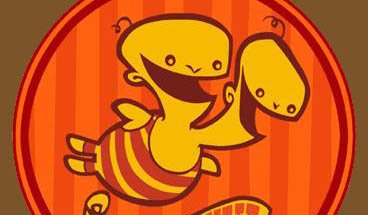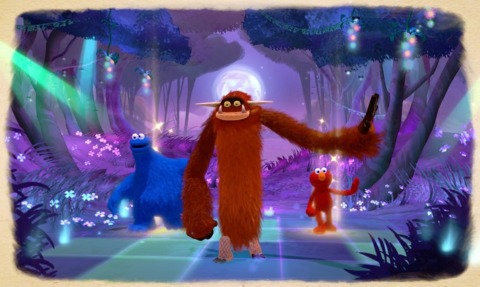How Amnesia Fortnight Saved Double Fine
With Brutal Legend 2 cancelled, the studio's future was unknown; but Tim Schafer had a creative idea that rescued the company.
Double Fine is in a good place right now. It crushed crowd-funding records with its Double Fine Adventure campaign, and its founder--Tim Schafer--is one of the most respected and adored personalities in the business. But Double Fine's story could have been very different. 
At a 2012 Game Developers Conference session titled "Creative Panic: How Agility Turned Terror Into Triumph," this week, Schafer looked back at an idea he had in 2007 that he says saved the company from going under.
In the middle of development of metal music-themed action game Brutal Legend, Schafer had an idea that would prove instrumental, even if he did not know it at the time. He decided to split his 60-person development team into four groups, challenging them to create short but complete games in just two weeks. The result, as Schafer said, was a "massive success."
Not only did the process give developers at Double Fine a morale boost, but it also allowed employees to try out new roles. No longer were developers locked into any one specific job. Programmers could become producers. Artists could become designers. Staffers were able to explore their capabilities, and Schafer was able to discover hidden talents of his employees.
He called this initiative "Amnesia Fortnight." It was "Amnesia" because the process made it so developers forgot what they were working on (Brutal Legend) and "Fortnight" because it lasted two weeks. Why two weeks? Schafer said "Two weeks equals infinity," and "One week is too short." 
But the team couldn't take more than two weeks off from Brutal Legend, so the staff returned to work on the action game, which it would ship with Electronic Arts in October 2009. The game won strong reviews from critics, and Schafer was ready to make a second entry.
Schafer had a vision for Brutal Legend 2. He pitched it. He was ready to make it. But much to his chagrin, it was cancelled, leaving Schafer and the rest of Double Fine in despair.
"We had no new ideas," Schafer said. "We thought we were going to go out of business."
But the San Francisco-based developer did not go out of business. In fact, the cancellation of Brutal Legend 2 was a pivotal moment in the history of Double Fine, one that would lead the developer to new pastures of game development.
Double Fine's second Amnesia Fortnight session was held in 2009, and this effort yielded tremendous results for the developer. Once again, Schafer split his team into four separate groups, tasking each with building a complete game in two weeks. Only this time, the stakes were higher because they knew the goal was to make commercial products.
The team delivered. 
According to Schafer, the second Amnesia Fortnight "turned the battleship into a fleet of tugboats." The process produced four new games: Costume Quest, Iron Brigade (Trenched), Stacking, and Sesame Street: Once Upon a Monster, all of which were well received.
Looking back on the Amnesia Fortnight process, Schafer said a major lesson learned was that a developer should identify its brand and stick to it. In the case of Double Fine, this identity was hard to pin down. It encompassed an array of elements, one of which was the element of surprise.
"Fans should expect the unexpected," he said. And Double Fine's development track record has been a testament to this ideal. With games about foul-mouthed roadies (Brutal Legend), Russian stacking dolls (Stacking), and mechs (Iron Brigade), gamers are never quite sure of what to expect from Double Fine.
For Double Fine, agility equals survival, multiplicity yields growth, and diversification leads to new opportunities. "We weren't bailed out by anybody" Schafer said. "Creativity saved our company."
Got a news tip or want to contact us directly? Email news@gamespot.com
Join the conversation